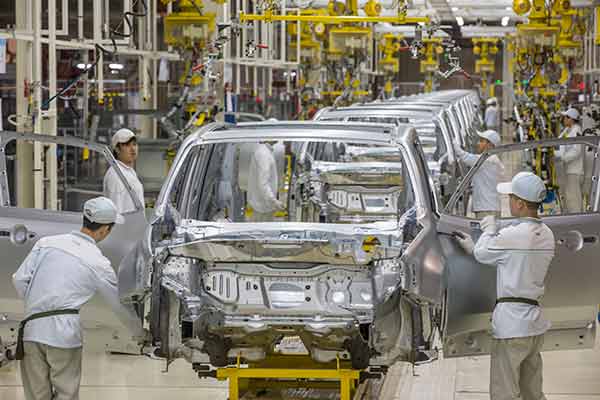
Businesses in Guangdong province have reaped numerous benefits since the government reduced fees and switched from a business tax system to the value-added tax.
A report from the Guangdong Provincial Development and Reform Commission shows the government reduced financial burdens on local businesses by 260 billion yuan ($41 billion) in 2017 through the beneficiary tax system and reduction of fees, some 60 billion yuan more than the reductions seen in 2016.
Bai Yu, an official of the commission in charge of pricing and cost management, said Guangdong has eliminated the provincial administration charges on enterprises, further regulated the list of fees the government charges from enterprises, and given the market a greater role in determining prices.
Guangzhou Automobile Group Co is among the businesses benefiting from such measures. According to the company’s report, from 2016 to 2017, the company saved up to 833 million yuan under the favorable policies including less tax, cost reduction of electricity and social welfare and transportation and administration fee elimination.
On taxation alone, the group saved 190 million yuan from 2016 to 2017 since the province replaced the business tax with a value-added tax.
In 2017, GAGC produced and sold around 2 million cars, up 21.5 percent and 21.3 percent respectively, making the group the top manufacturer and seller among the six major domestic automobile companies. The group, together with its joint venture and associated companies, generated revenue of 339.7 billion yuan in 2017.
The provincial government also issued funds to support leading companies in green technology, digitalization and intelligentization. GAGC has been awarded 141 million yuan for technology and industrial structure upgrading.
Gree Electric Appliances Inc, one of the country’s major household appliance manufacturers, has also benefited largely from the government’s effort to release financial burdens on companies.
“The measures the government adopted in recent years have lowered the company’s burden in many ways such as water, electricity and gas costs,” said Wang Jingdong, vice-president of Gree. “For example, since the price of industrial electricity dropped, the company saved 2.8 million yuan in 2016 and 14 million yuan in 2017.”


